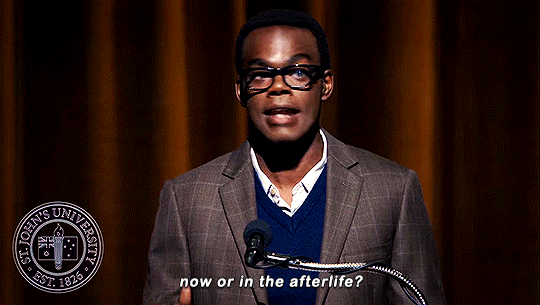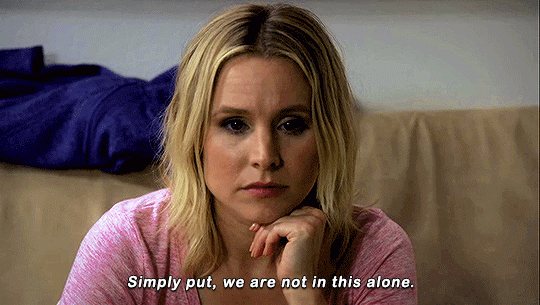Im in my mid-twenties, live in Australia, my dog (Max) is my life, I’m doing my best to get fit and finish uni, and I have too many interests to conceivably list. I’m always happy to chat!
Don't wanna be here? Send us removal request.
Note
So my writing has come to a firm halt after a review about my protagonist being a Mary Sue 😫 It is something I can't seem to escapee, what's your advice on not making a Mary sue character too unlikeable? Thanks for answering x
THIS IS WHY I HATE SHITTY REVIEWS!!!!
Look at this! See this lovely person! She has run up against a wall because of a review. Is this what you want, people who insist every story put out on the web is fair game for your ‘constructive’ critique? To make a writer stop writing? You WANT to kill the goose that lays your golden eggs of free stories? WHY????
*shakes self*
OK, now that I have that out of my system I’m going to ask you a simple question (which is a rhetorical device because I plan to answer it, but bear with me. It’s hot and I’m grouchy.)
Why do you care if your character is a Mary Sue?
You know what characters are weirdly overpowered/good at stuff for no apparent reason? Characters who everyone likes despite having less than stellar personalities? Batman. Luke Skywalker. James Bond. But MALE power fantasies are OK. We don’t bat an EYE at MALE power fantasies. But the moment a FEMALE character is powerful and smart and interesting we’re all “Oh, she’s a Mary Sue. Tone her down.”
FUCK no.
I mean, half the time (99% of the time?) “mary sue” in a review is a meaningless criticism. The phrase has no really accepted universal meaning and when people use it they’re pretty much trying to put you down.
Don’t let them.
Write whatever you want, and if that’s an exotically beautiful, ridiculously talented character who everyone adores for no good reason and who steals the show? So what. It’s your story. That reviewer can go write his own story about a boring character who no one really likes and who doesn’t do much. I mean, I won’t read it, but people should write the story they want to read and if that’s the story the reviewer wants, he needs to get on it,
(Also, link us up so praise can be showered upon you to try to take the sting of that review away.)
2K notes
·
View notes
Text
Lunar Phases
🌑🌘🌗🌖🌕🌔🌓🌒

🌑New moon:
New beginnings
Cleansing
Creation
Resetting
🌒Waxing crescent:
Strength
Fertility
Healing
Creativity
Manifestation
🌓First quarter:
Attraction
Bonding
Taking action
🌔Waxing gibbous:
Energy
Strength
Renewal
Determination
🌕Full moon:
Power
Psychic ability
Celebration
Rejuvenation
Divination
🌖Waning gibbous:
Cleansing
Protection
Gratitude
Closure
Repelling
🌗 Third quarter:
Transition
Balance
Calming
Release
🌘 Waning crescent:
Banishing
Removing negativity
Rest
Surrender
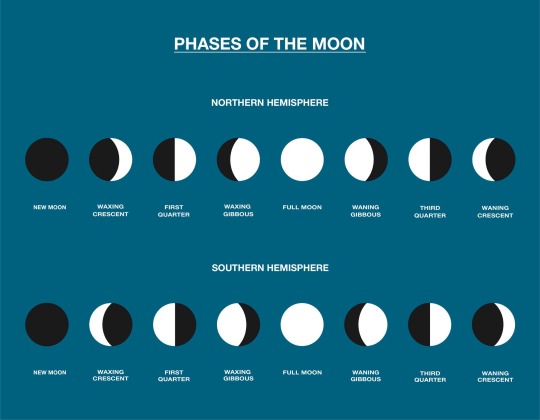
2K notes
·
View notes
Text
"I am witch",
She says,
As she picks up the plastic pieces.
"I am witch",
She says,
As she fondles her lover's hair.
"I am witch",
She hums,
As she sings honeysuckle hymns to her beloved,
Boys and girls.
"I am witch",
She says,
As the wind kisses her skin,
And the moss tastes her bare toes.
"I am witch",
She roars,
As her fire protects what is sacred.
"I am witch",
She groans,
As she liquifies with her King's sacred wand.
"I am witch",
She sighs,
As she slides into a bubbling lavender infused tub.
And as she worries,
And warriorers,
Holding tightly onto her
Sisters' magick infused hands,
She is witch.
Loving.
Medicine crafting,
Sitting between the boundaries of life and death.
She is not more powerful,
Than the world that moulded her out of dirt and stars,
She thrives because of it.
She belongs to the forest, to the rivers and the skies.
She belongs to herself.
She belongs to her dreams.
She is witch,
And she is being reborn.
And all the witches,
And the sorceresses,
Oracles,
Seers,
Tincture makers,
Brujas and Kaldunyas,
Covens upon covens,
Sisters and guides,
Embodiments of the Great Goddess,
They welcome you home.
We are witch.
Women and men, planted in their power.
Here to take the world by storm.
For the work has just begun,
To manifest our rightful reality,
Where Love has already won."
840 notes
·
View notes
Photo
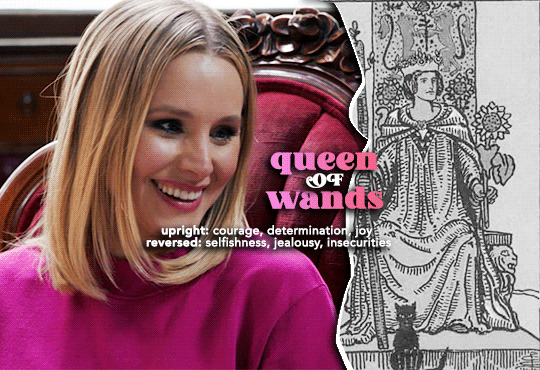
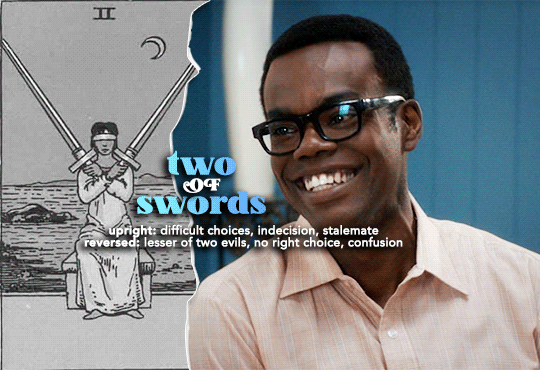
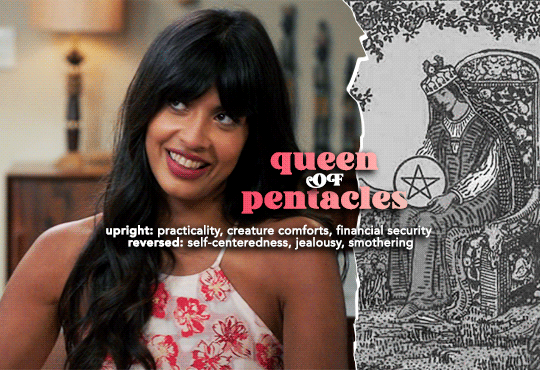
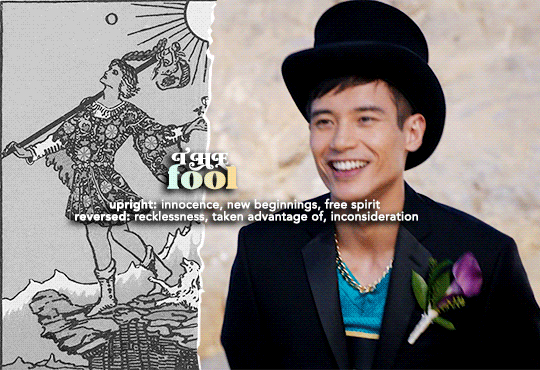
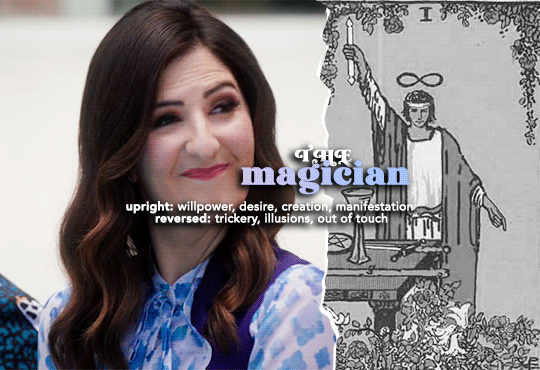
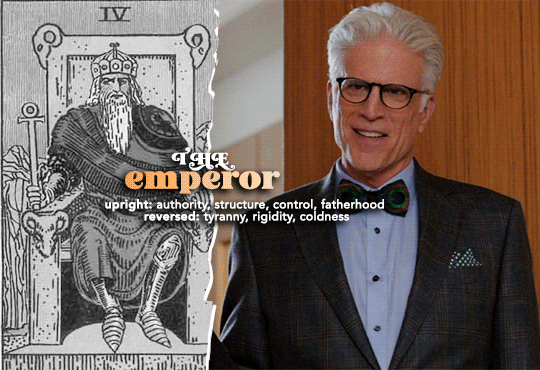
the good place main characters + tarot cards [insp.]
4K notes
·
View notes
Photo



The Good Place 2x11 - “Rhonda, Diana, Jake, and Trent”
7K notes
·
View notes
Text
112K notes
·
View notes
Text
One thing I’ve learned about writing is ”give everything a face”. It’s no good to write passively that the nobility fled the city or that the toxic marshes were poisoning the animals beyond any ability to function. Make a protagonist see how a desperate woman in torn silks climbs onto a carriage and speeds off, or a two-headed deer wanders right into the camp and into the fire. Don’t just have an ambiguous flock of all-controlling oligarchy, name one or two representatives of it, and illustrate just how vile and greedy they are as people.
it’s bad to have characters who serve no purpose in the story, but giving something a face is a perfectly valid purpose.
97K notes
·
View notes
Photo
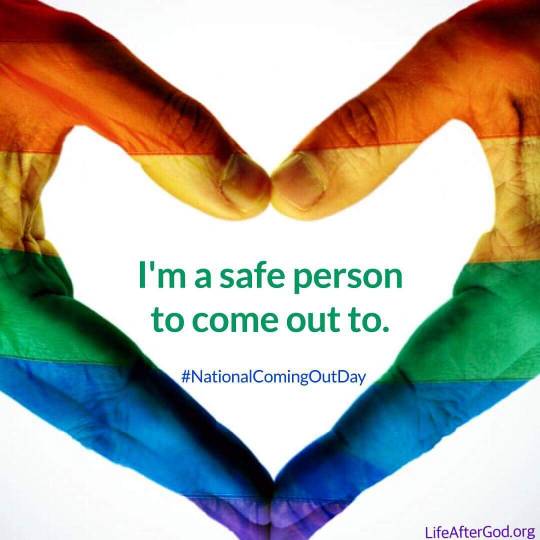
Reblog to let your followers know you are a safe person to come out to.
203K notes
·
View notes
Text
entirely furious i got tricked into thinking the hit song Diamonds Are A Girl’s Best Friend is about women being gold diggers when a critical re-reading reveals a catchy lament on the way men use women for their bodies while simultaneously enforcing a system wherein a woman’s financial stability is determined by male whims, hence the importance of securing gifts of real monetary value to save against a future of homelessness and destitution
8K notes
·
View notes
Text
okay but even in the Good Place, even after all her character development was done, Eleanor still initially reacted selfishly when Chidi decided he was ready to leave. But then she reflected, realized her mistake, and immediately apologized and did better.
Being a good person doesn’t mean never having bad thoughts. It just means you recognize them and decide not to act on them.
103 notes
·
View notes
Text
“Time means nothing. Jeremy Bearimy, baby. We’ll just get through this. And then you and I can chill out in the dot of the “i” forever.”
— Chidi
335 notes
·
View notes
Text
The most romantic line in all of media is “Jeremy Bearimy, baby” and no one can change my mind on this send tweet
551 notes
·
View notes
Text
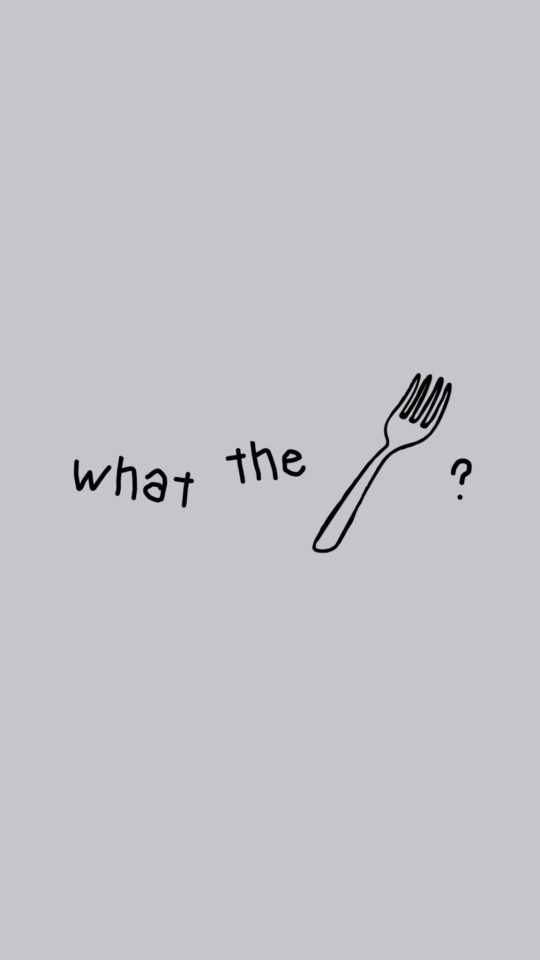







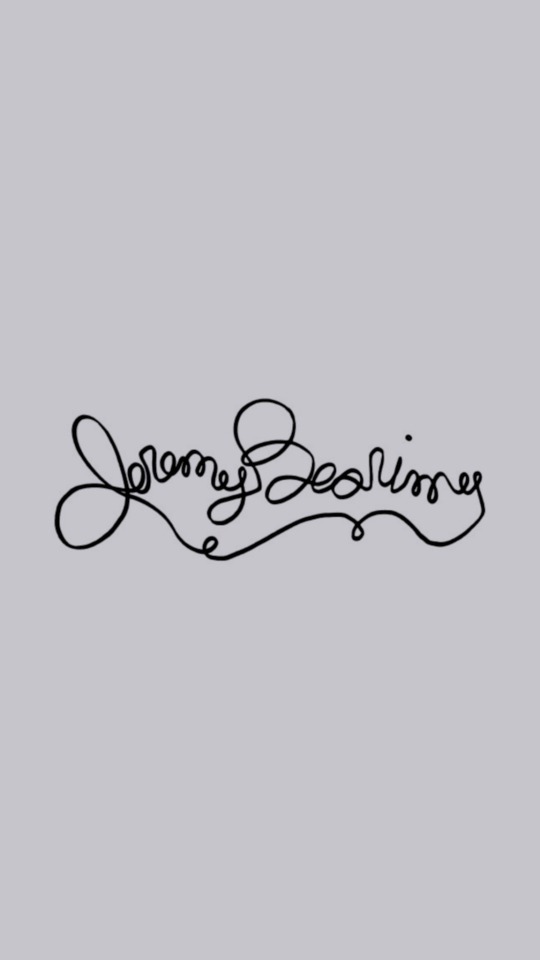
the good place
like or reblog if you save or use
give credit if you repost
1K notes
·
View notes
Text
Marriage Through an Anthropological Lens: For Worldbuilding

Heya! Worldbuilding is a tough nut to crack and sometimes it helps me to look at it from an angle other than purely creative. Anthropology, specifically cultural anthropology, can be a good start.
This is far from a comprehensive rundown of marriage in anthropology, but it’s a good place to start. And please remember, this is only the anthropological scope of marriage across our own world cultures. It’s not a broad look or about weddings or about specific cultures.

The Social Purposes of Marriage
Control property ownership and inheritance
Provide social/emotional needs of individuals
Maintain a group or bloodline
Establish alliances (financial, social, political, etc)
Child rearing
How to apply this to your worldbuilding: The motivation for marriage comes in different shapes and sizes than simply love. Adding diversity to this front reflects the diversity in our own world and adds potential conflict for subplots.
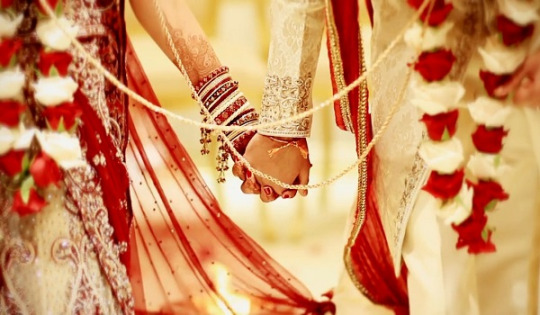
The Incest Taboo (and why it matters)
The incest taboo is the stigma of marriage within one’s family, whether that only be immediate family or any blood/legal relatives at all. It’s important because it is found cross-culturally in our world, meaning it’s a nearly universal rule. While the motive for the stigma has evolved in modern times, it originated because of infertility and other birth defects caused by blood relatives reproducing.
Historically, marriage between cousins has avoided this taboo.
How to apply this to your worldbuilding: If nearly everyone on our planet finds incest taboo, chances are your world will, too. Yeah… that’s all I’m going to say on this subject.

Endogamy and Exogamy
These terms describe the social relation between the people involved in a marriage.
Exogamy is when a person marries outside their age group, class, ethnicity, religion, and/or region. It’s more common in diverse areas or when transportation/travel is accessible. One of the benefits of this is the expansion of kinship.
Endogamy is the opposite of exogamy when a person marries within these parameters. The benefits are usually in the perpetuation of a group or community.
How to apply this to your worldbuilding: The societal views on this topic are usually much less strict or obvious than other marriage standards. However, it’s important to think about whether a person, group, or society would expect one over the other and why. If your world has a caste system, then it would probably be stricter on endogamy.

The Exchanges of Marriage
Marriage is often accompanied by social and property exchanges. Here are a few anthropology terms related to this concept*:
hypergamy: “marrying up”; one of the spouses involved raises their social and/or monetary status through the marriage
bridewealth: the groom’s family pays the bride’s family money in exchange for the marriage
brideservice: wherein the groom must provide physical labor for the bride’s family before marriage
dowry: the bride’s family pays the groom’s family
*keep in mind, these are based on hetero- and cis-normative assumptions and would be altered for same-gender or nonbinary-partner marriages.
How to apply this to your worldbuilding: Again, sometimes marriage is partially an exchange of money. Who pays whose family depends on the societal views of gender.

Residence after Marriage
Where the new couple lives after marriage can be a big cultural thing. It’s not always written in stone but usually is expected by a family or society. There are 5 major categories of residence*:
Patrilocality
this is when the new couple lives near/with the groom’s family
found in cultures that value male status and power
50-70% of marriages in our world fall under this category
Matrilocality
this is when the new couple lives near/with the bride’s family
advocates for female control and matriarchal kinship
often found in agricultural societies
Avunculocality
this is when the new couple lives near/with the groom’s mother’s brother and his family (his uncle)
it’s a thing because of a bunch of property rights/inheritance mumbo jumbo
rare, only 4% found in our world
Neolocality
this is when the new couple starts their own, independent household
smaller household in comparison to the others
it is private and mobile but requires a good amount of personal wealth
*again, these are based on hetero- and cis-normative assumptions for the most part
How to apply this to your worldbuilding: different families and societies come with different needs. Agricultural families need more hands than urban ones do.

Polygamy
Marriage between two individuals is called monogamy and is (surprisingly) not the most common in our world. In anthropology, there are two ways to have more than one partner.
Polygyny: When a man has two or more wives; most common in our world. > Sororal polygyny is when a man marries two or more sisters (sister-wives)
Polyandry: When a woman has two or more husbands, rare in our world.
The motives for polygamy are varied from anything like religious views to the societal view of a gender’s status.
How to apply this to your worldbuilding: The most common form I see polygamy in fantasy novels is with royalty. However, in our own world, it is most often found in smaller, more rural societies and communities. This could also be a part of your religion worldbuilding.

To Remember
Marriage, weddings, and their traditions all hinge upon other worldbuilding categories including, but not limited to: religion, family and parenting, government, and gender & sexuality. Make sure you consider everything as a whole when worldbuilding certain categories.
2K notes
·
View notes
Text
Legit Worldbuilding Tip #2
or - “Why Economics is Important”
So, let’s talk about economics.
I can hear you groaning back there. Hold on and hear me out.
When you’re creating a fantasy world or a sci-fi world, many things define cultures. One of the most important for a lot of writers is religion, with politics being secondary in a lot of cases.
But how often, when trying to create a unique world for your characters, do you stop and think about how money works for them? Or if they use money at all?
Let me pause right here and give you the dictionary definition of economics. That might help you understand exactly what I’m talking about -
ec·o·nom·icsˌ
ekəˈnämiks,ˌēkəˈnämiks/
noun
1.the branch of knowledge concerned with the production, consumption, and transfer of wealth.
It’s not just a “money” thing. Economics is all about how things move in a society - where things come from, who produces those things, and - most importantly for worldbuilding - how the people in a community are affected by that system.
A lot of writers will just look at our world and transfer that model directly into the world they’re writing about. There are rich people who have money, and poor people who don’t. In science fiction novels, people might exchange credits for the things they need. In fantasy, characters hand over gold coins without the writer giving it a second thought.
So What’s the Issue?
Well, the issue is this - different economic systems work (arguably) for different worlds. You can see that in our current society. Different countries function better with different economic landscapes. That’s been true through history, too, and economics have changed with the times.
But… I Don’t Know Anything About Economics
Nobody is asking you to write a giant manifesto about the next great economical system. Nor do you need to describe the details of your world’s economics in your story. Your characters likely don’t know everything about how their economics work, and your reader probably won’t care.
But. But. Little details here and there can help enhance a world and show how it’s different from ours. Little economic details can help you better understand how your world actually functions. They can better explain things about your characters and the lives they’ve lead up to that point.
Case in point. In the Dragon Age series of games, there is a magical substance known as lyrium, which is important to both mages and soldiers known as Templars (who use the substance to increase their power).
Because lyrium affects most individuals, but not dwarves in this world, dwarves have developed an entire society centered on mining and distributing lyrium to the other races. Dwarves are merchants primarily. There is also a large dwarven crime syndicate that smuggles lyrium illegally. In essence, the importance of lyrium has led to a lyrium-based economics system for the dwarves in this world.
So What Things Should I Be Thinking About?
The biggest thing to consider is what “wealth” means in the world you’ve created. First and foremost, where does most wealth come from?
Let’s look for a moment at our history. In one example,lLandowners with a lot of good, workable property became rich usually because of taxes. They took money from other (poorer) people in exchange for a place to live, as well as protection. Those landowners became the “lords” and “kings” of the places and peoples they swore their protection to in exchange for money, goods, and services.
This is the basis of most fantasy fiction. There are also many ways this system could be exploited in a fantasy world.
Here’s a hypothetical. In a high fantasy world, only a certain type of person is able to fight and kill demons that appeared a few centuries earlier. Most people would be dead if left to their own devices.
But, these Demon Fighters realized they could exploit their abilities. They offered to protect the common folk in exchange for what the people could provide them. So, in time, the Demon Fighters became the ruling class.
But even among the Demon Fighters there is a class system. Not every Demon Fighter has the same abilities. Some individuals are more suited to combat, being able to take down demons by force. Others have the ability to control demons. In time, the combat-able Demon Fighters become soldiers and those with the ability to control demons become Nobles, most of whom have demon servants and bodyguards.
Let’s Talk About Surplus and Scarcity
In most societies, economics are centered on two principles.
The first is surplus. Having a surplus means having more than is needed of something. The other is scarcity. You can guess what this is. The more scarce something is (i.e. the less of something there is) the more valuable it becomes.
The more food that is available, the less difficult it becomes to acquire food. It can be freely traded, whether for other items/services of equal value or for money (or whatever symbolic exchange product a society uses, like “credits” in a sci-fi world). If there’s not a lot of food to go around, it becomes more difficult to acquire food.
The person who has a lot of a needed thing holds power over those who don’t have that thing. In the Dragon Age example, even though dwarves aren’t human they aren’t treated as poorly as elves, another race that exists within that world. People rely on dwarves for lyrium, which gives them power, which means that even if they aren’t human they are important enough to humans to be treated more “equally” than elves.
What if Nothing is Scarce in My World?
For a while now, people have talked about the possibility of a post-scarcity economy. I’ll just leave this here - https://en.wikipedia.org/wiki/Post-scarcity_economy
Post-scarcity economies are often found in science fiction that idealizes the future. Often these societies have a lack of a power structure. If anybody can go out and get what they want or need at any given time, then it’s hard for any one group to hold sway over the rest.
Sometimes, companies today will create false scarcity by destroying goods and forcing the prices of those goods to be higher than it should be. This has happened in the dairy industry, with tons of milk being disposed of because dairy farmers want to protect their livelihood.
I will say that I am NOT an economics expert, by any means. Nor do you have to be to think about it when writing fiction.
Just be aware of the power structures that exist because of economics, and how this will likely play a role in the world you’ve built. Think of ways to play around with the power structures. Think of how your idea of space travel or demons or whatever will affect your world’s power structures.
All this can lead to a lot of interesting dynamics in your world that can help set it apart from the rest.
2K notes
·
View notes
Photo

How do I know if I have too much exposition?
ex·po·si·tionˌekspəˈziSH(ə)n/ (noun)
a comprehensive description and explanation of an idea or theory
As a basic rule of thumb: if your exposition distracts from the main narrative, then it’s too much.
That sounds a lot simpler than it actually is, though, doesn’t it? Because it’s difficult to tell when we’ve pulled the reader’s attention away and when we haven’t within our own work.
That’s why beta-readers are so helpful because getting a fresh eye can do wonders for helping see things in our work that we’re too close to notice. A good beta-reader (or two or seven) is an invaluable tool for a writer. Find a few friends or family whose opinion you trust and listen to them when they have feedback on your work. Their word isn’t gold–you don’t have to make every change they suggest–but it is still important for your development.
But that’s not really the issue, right? This post is about what you can do to help your own work improve!
First, if you’re fretting over this and you have not written your novel yet…then stop reading this post and go write your book! In your first draft, you should write all the words. (Maybe not all, but lots.) It’s okay to write four pages of exposition in the middle of scene in your first draft because in this version, you’re just telling yourself this story. You’re organizing notes, thoughts, outlines, etc. into a narrative. It won’t be perfect, and that’s great. You can’t move onto the next stage of book-making until you’ve got a first draft, so throw caution to the wind and write!
This post is mostly for those of you who have finished work and are going over it prepared to edit, rewrite, scramble it up, and starting making that mess-of-a-first draft into a finished, wonderful product.
So…it’s time to edit your book
Zoom in on a section of exposition and take every fact you’ve written about and ask:
Does this advance the plot? Do we come to a deeper understanding of a main character because of this?
If the answer to both of those is no, then cut it (in this draft. Don’t worry. You still have those words written in previous drafts!) Do this as you read through for any section of exposition you find.
Then, when you’ve shaved off the irrelevant bits, start asking yourself: Is there a more subtle way to weave this into the action or dialogue of the narrative? If no, but it’s still important, then leave it. If yes, then try to do some rewriting where you have these cultural tidbits revealed in the actions and speech of your characters.
For example:
Allendra was from the southern tribes. Their main diet consisted of crop, food produced from the land. Wildlife beyond the occasional crow or squirrel was rare, so the southern tribe had come to view their abundant crops as a gift from the gods. They were vegetarians as a matter of, not only happenstance, but religion. That religion had been instilled in her by her parents, primarily her mother, and even though she’d left her homeland and was wandering new, unfamiliar territories for the sake of her own people, her mother’s hypothetical approval still drove Allendra’s actions. When presented with meat, Allendra did not know what to do. She was out of her league here, in this strange culture. And she didn’t know how to turn away the offer without being rude.
vs.
“Street vendors?” Allendra said, lifting a brow. “But they’re all selling…bloody things.”
Randa laughed. “Oh, Ally, don’t betray yourself as such an alien. That’s meat! Everyone around here eats it. It’s good for you.”
“I haven’t…I don’t eat…It’s just…” Allendra stumbled over her words. She didn’t want to be rude. Her mother would slap the back of her head if she was rude to this new hostess. And yet…what would mother say if Allendra waltzed up to this vendor and took a bite of the meat? Allendra shuddered to think.
The gods wouldn’t be too thrilled, either, but it was the image of mother’s disappointed face that made Allendra turn away from the street vendors and keep walking. Homesickness filled her gut. “Sorry, Randa. I just can’t.”
See you can do to make cultural facts fit into the story or character development. Here are some ways to think about that, as you attempt to change flat exposition into engaging storytelling:
Could this worldbuilding exposition be used to:
Invoke an emotion in a character?
Create conflict between characters?
Create conflict within a character?
Add tension to the main plot?
Add tension to an important subplot?
Create a funny or awkward situation?
Motivate a character’s actions?
Prevent a character from taking necessary action?
Basically, ask yourself this main question: How can I show the importance of this cultural element, rather than telling the reader how important or relevant it is?
Sometimes, exposition is needed. It’s not evil and it has a lot of power to get bullet points of information to your reader quickly. However, you–the writer–always need to make sure you’re letting exposition have power by using it sparingly. There are always multiple options on how to present information to your reader. It’s your duty to make sure you consider them all and use the one that best fits your narrative.
And now that you’ve finished this draft of editing and rewriting, set your novel aside for a while. A week, a month, a year…whatever you need. Come back to it later with a fresher perspective and see how your edits fit together. If you find that some of the exposition that you cut needs to be put back, then you can always do that. You can see the flow better, and do more editing to help your new rewrites fit effortlessly into the narrative. You are the writer. YOU HAVE THE POWER.
Happy building!
2K notes
·
View notes


